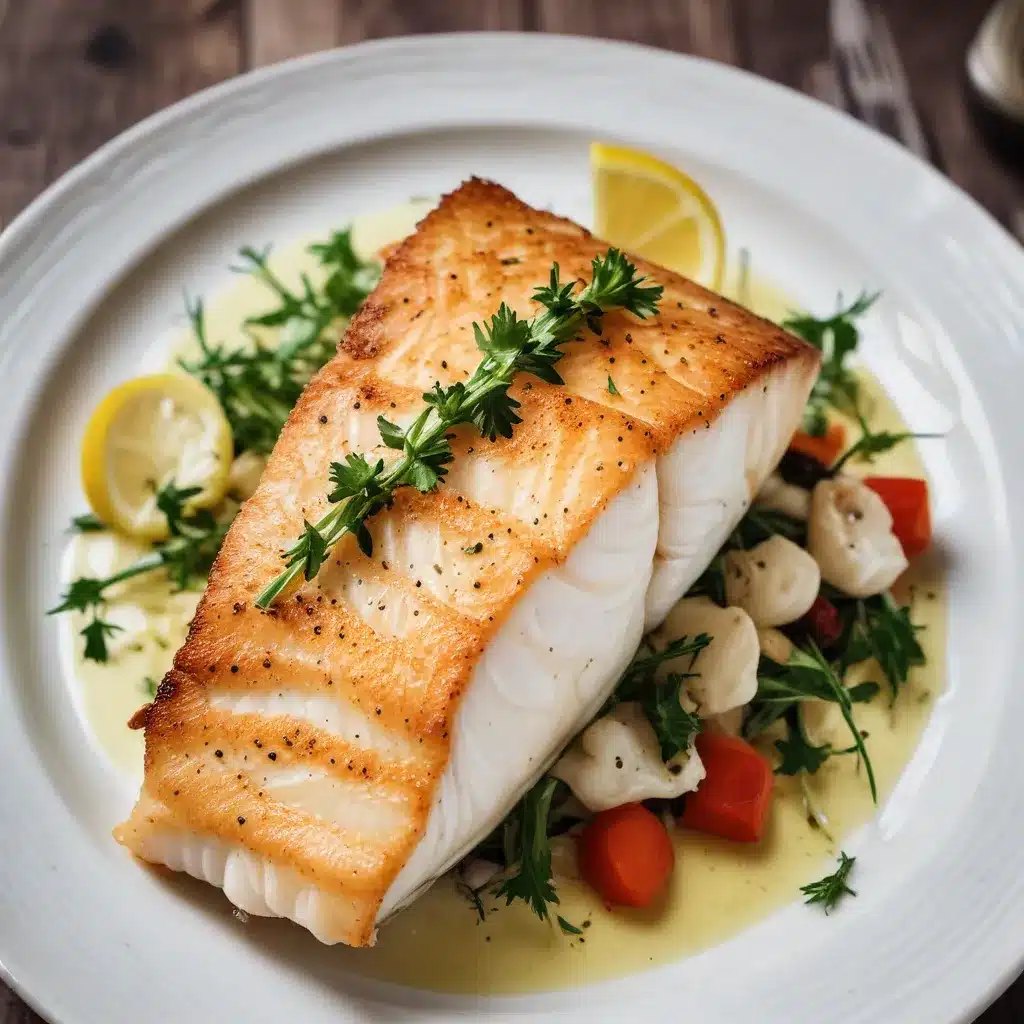
The mighty cod has long held a revered place in the culinary hearts and minds of seafood enthusiasts around the world. This versatile, flaky white fish, thriving in the chilly waters of the Atlantic and Pacific oceans, has become a staple in diverse global cuisines, each culture adding its own unique twist to showcase the cod’s adaptability.
The History of Cod
Cod’s history can be traced back centuries, with its importance deeply woven into the fabric of coastal communities. As early as the 16th century, the Grand Banks off the coast of Newfoundland became a hub for cod fishing, with European nations vying for control of this lucrative resource. The salting and drying of cod, a crucial preservation method, enabled long-distance trade and sustained communities through harsh winter months.
The Importance of Cod in Coastal Communities
Even today, cod remains a cornerstone of many coastal economies, providing livelihoods for fishermen and sustenance for local populations. In Norway, for instance, the skrei ‒ a migratory Arctic cod ‒ is celebrated with annual festivals, honoring the fish’s cyclical journey and the rich cultural heritage it represents. Similarly, in Portugal, the iconic bacalhau (salted cod) is woven into the national fabric, with an estimated thousand ways to prepare this beloved ingredient.
Sustainable Cod Fishing Practices
As the demand for seafood grows, the need for sustainable fishing practices has become paramount. Responsible stewardship of cod populations has led to the implementation of stringent regulations, such as catch quotas and conservation efforts, ensuring the long-term viability of this precious resource. Initiatives like aquaculture have also emerged as a means to supplement wild-caught cod, providing a sustainable alternative while preserving the delicate balance of marine ecosystems.
Traditional Cod Recipes
Across the globe, cod has become a staple in traditional regional cuisines, showcasing the versatility of this remarkable fish. In Portugal, the bacalhau (salted cod) is revered for its unique texture and flavor, often featured in hearty stews, flaky pastries, and even as a simple grilled dish. In New England, the beloved fish and chips is a classic pairing, where the crisp, golden-brown fried cod is complemented by fluffy, hand-cut fries.
Innovative Cod Preparations
While traditional recipes continue to delight, the culinary world has also embraced the potential of cod to be transformed through innovative cooking techniques. Chefs have experimented with sous vide preparations, yielding perfectly cooked, melt-in-your-mouth cod fillets. Others have incorporated cod into creative dishes, such as ceviche, where the fish is “cooked” in an acidic marinade, or en papillote, where it is steamed in a parchment packet with aromatic herbs and vegetables.
The Health Benefits of Cod
Beyond its exceptional taste, cod is also revered for its impressive nutritional profile. As a lean, low-fat protein, cod is an excellent source of omega-3 fatty acids, essential vitamins, and minerals. Consuming cod as part of a balanced diet has been linked to a range of health benefits, including improved heart health, cognitive function, and immune system support.
Cod in Mediterranean Cuisine
The cod’s adaptability extends beyond traditional preparation methods, with its versatility shining in the vibrant flavors of Mediterranean cuisine. In Spain, the bacalao (salted cod) is a beloved staple, often featured in hearty stews or paired with creamy potato dishes. Similarly, in Italy, baccalà (salted cod) is a cherished ingredient, used in everything from fried fritters to comforting casseroles.
Cod in Asian Culinary Traditions
Across the Pacific, cod has also found a home in various Asian culinary traditions. In Japan, the delicate, flaky texture of cod lends itself beautifully to tempura and sashimi preparations. Meanwhile, in China, cod is often incorporated into steamed dishes, where its mild flavor is complemented by bold seasonings and sauces.
Cod in North American Gastronomy
In North America, cod has become a beloved staple, particularly in the coastal regions. From the iconic fish and chips of the East Coast to the cod cakes of Newfoundland, this versatile fish has found a permanent place in the hearts and stomachs of seafood enthusiasts. Additionally, the rising popularity of gluten-free diets has led to the increased use of cod in alternative seafood dishes, catering to a wider audience.
Overfishing and Conservation Efforts
As the global demand for cod has surged, concerns over overfishing and the environmental impact of commercial fishing practices have come to the forefront. Responsible stewardship of cod populations has become a crucial priority, with regulatory bodies and conservation organizations implementing measures to protect this valuable marine resource. Initiatives like sustainable aquaculture and responsible fishing quotas aim to ensure the long-term availability of cod for generations to come.
Cod’s Ecological Significance
Beyond its culinary prominence, cod plays a vital role in the delicate balance of marine ecosystems. As a predatory fish, cod helps to maintain the health and diversity of the oceanic food web, regulating the populations of smaller species and contributing to the overall ecological equilibrium. Preserving the health and abundance of cod populations is not only crucial for the sustainability of seafood resources but also for the preservation of the broader marine environment.
Whether you’re a seasoned seafood connoisseur or a curious culinary explorer, the world of cod offers an endless array of gastronomic adventures. From the comforting traditionalism of classic cod dishes to the innovative culinary explorations that push the boundaries of this versatile fish, the cod continues to captivate taste buds and inspire culinary creativity worldwide. Embrace the rich history, cultural significance, and health benefits of cod, and embark on a culinary journey that celebrates the versatility of this beloved seafood. Discover the wonders of cod at your local Fish Tales Cafe today!

